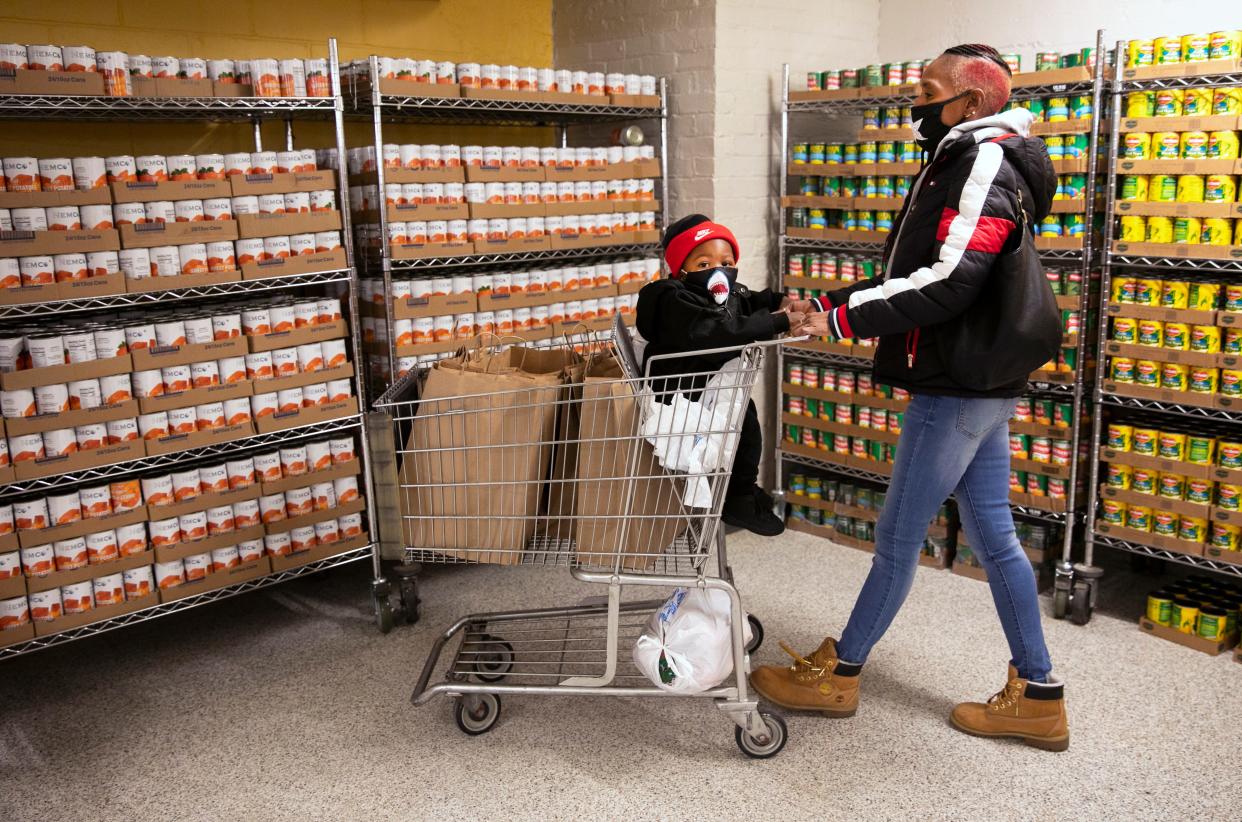Farm bill critical to ending hunger at home and abroad | Opinion

The farm bill is our nation’s most important national food system legislation. It is critical to the work of ending hunger at home and abroad. As pastor of a church in Anderson Township, it might surprise many residents living in the affluent suburbs of Cincinnati and Northern Kentucky to know that almost every week a poor person with basic humanitarian needs walks into my church seeking assistance.
I describe these visitors as "living on an island." They have become separated from family and friends and have little or no support network. Their stories are heartbreaking. I have learned that there are many complicated or systemic reasons why people struggle in our communities. Some have mental or physical health conditions. Others struggle with the costs of evictions, childcare, or car repairs. Others have not benefitted from a quality education. Some have been afflicted by the powers of addiction. Some of them are working hard to support children parents, and siblings but do not earn a daily living wage in our economy.
These neighbors find the church when there is too much month left at the end of their money. Their needs may include food, medicine, diapers, gasoline, car repairs, assistance with utility bills, or rent assistance. Some of these visitors are homeless, virtually all of them are living in poverty and are on the edge of human existence. They arrive at my church with far more frequency than my mind can process or understand, even after 26 years of ministry, because they are the invisible ones − the ones we call the least of these − who are living on an island while my parish is located in a sea of wealth.
As a person of faith, I am motivated by the biblical belief that we meet Jesus in the least of these. When we feed the hungry, give drink to the thirsty and provide medicine to the sick, it is as if we are welcoming and ministering to Jesus. Jesus teaches us that these are our neighbors, and the entire community is blessed when all neighbors receive their daily bread. Most world religions have their own version of teaching that is intended to inspire the faithful to be compassionate to the neighbor in our midst.
While faith communities can provide relief for the poor and the outcast, the truth of the matter is that only the government has the wherewithal to address this challenge with the resources required to make dramatic change. Several years ago, I read research that indicated that 24 out of every 25 bags of food distributed by food pantries were funded by the government. That statistic has likely not changed very much today. Compassionate policy toward the poor is indicative of a moral and just nation.
The farm bill is a massive and far-reaching piece of legislation that comes before Congress every five years and is currently being debated by our legislators. As Congress works to renew our food and farm programs through the farm bill, I urge you to support legislation that builds healthy, equitable and sustainable food systems. Call or write to our senators and congressmen and advocate for them to protect the Supplemental Nutrition Assistance Program, increase funding for fresh produce within SNAP, and extend SNAP benefits to communities disproportionately impacted by poverty; women, communities of color, college students, and rural communities − both in the U.S. and around the world.
I am a supporter of the Poor People’s Campaign, a national effort for moral revival led by Rev. Dr. William J. Barber II. They report that over four million poor and low-income voters live in Ohio and 85 million across our nation. That is one-third of our electorate. I meet some of those people each week who visit my church seeking "daily bread." It occurs to me that they are so preoccupied with survival that they do not have time to raise their voice on their own behalf. For those of us with power, education, resources and faith, it is incumbent upon us to be a voice for justice and equitable distribution of our Creator’s blessings.
We are our brother and sister’s keepers. In our wealthy nation, we have the resources. We must also have the will.
Rev. Henry Zorn is pastor of Lutheran Church of the Resurrection in Anderson Township.
This article originally appeared on Cincinnati Enquirer: Farm bill critical to ending hunger at home and abroad | Opinion

